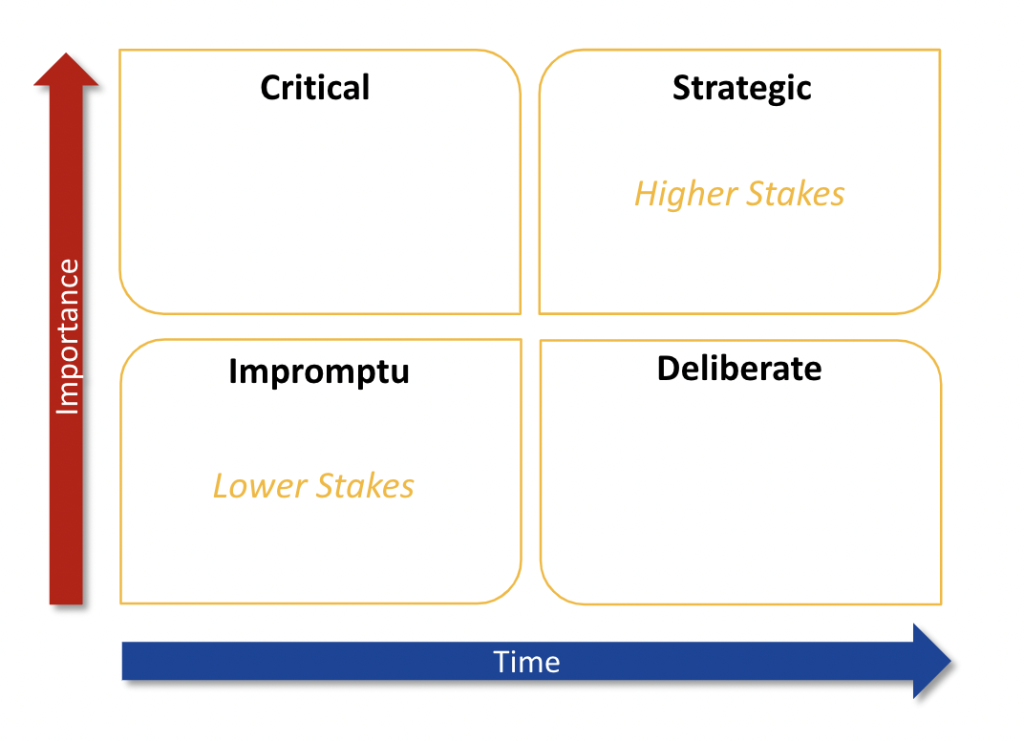
Decisions come in all shapes and sizes across an organization: from the simple to complex, to immediate vs. long-term. No matter the variety, the first and most important factor across all types of decisions is determining (and gaining agreement around) the decision maker. Or, as one of my esteemed colleagues says, “Who owns the ‘D’?”
“Who owns the D?” is often informed by the stakes of the decision. Two key factors that determine the stakes are the time needed to make the decision, and the importance of the decision to the organization.
In general, low to medium stakes decisions involve fewer people, happen faster and are less important to the broader organization. In those decisions, the decision maker is often defined by a person’s role and scope of responsibilities. If you lead a sales team, for instance, it’s usually your decision on how accounts are realigned after a team member leaves.

High stakes decisions, often strategic, tend to require input from a cross section of contributors. They are often vital to the organization’s long-term success and take more time and deliberation.
In those cases, identifying the decision maker can be less clear and might even be up for debate. Deciding which customer input gets prioritized and fed back into product roadmaps, for instance, crosses several organizational functions (e.g. sales, product marketing, product management, product development and engineering).
When the decision maker is unclear, decisions tend to take an inordinate amount of time and can result in a lot of teeth-gnashing and strained relationships. What’s worse, when there’s no clear decision maker, accountability languishes.
Clarity on the decision maker is the starting point not only for making better decisions. It’s also on the critical path to leading effectively and getting anything done.
Nearly as critical to identifying the decision maker is getting clear about who else is involved, their roles and the decision-making process. That’s a topic for another blog, perhaps.
For now, here’s to living decisively.
Share This Post:
Speak Your Mind